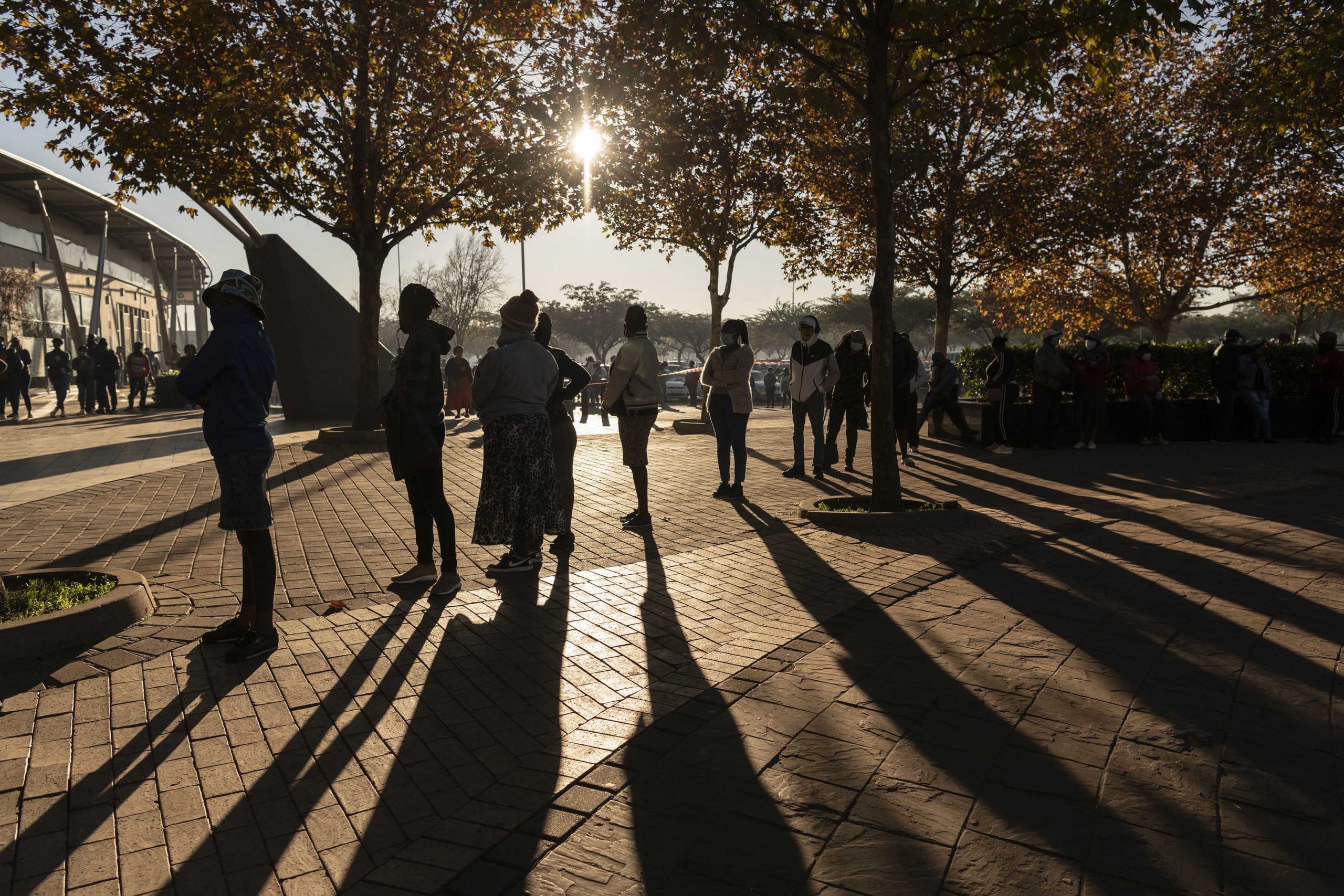The government must help caregiving women
Carers – who are mostly Black women – are disproportionately affected by the devastation of the Covid-19 pandemic and should be supported, not penalised, by the state.
Author:
1 July 2021

The South African government discontinued the R350 Covid-19 social relief of distress grant on 30 April 2021.
Provided from May 2020, the grant was established to lessen the impact of the Covid-19 pandemic on the most vulnerable people in our country, who face severe job cuts, hunger and escalating poverty.
We argue that the termination of the grant constitutes a failure by the government to fulfil its mandate to “improve the quality of life of all citizens and free the potential of each person” and to protect the women who shoulder the burden of our hard lockdowns and ongoing economic crisis.
Related article:
The economic and social burden of the pandemic has largely been borne by women. Globally and nationally, pandemic-related job cuts in the formal and informal economies affected jobs most commonly occupied by women. Further, many of the “essential services” relied on during lockdowns – such as those discharged by cleaners, cashiers and nurses – are often performed by women, showing the extent of women’s responsibility during the lockdown.
Importantly, women’s economic role during this pandemic cannot be relegated only to paid labour. The pandemic has seen schools and other caregiving centres close, compounding women’s dual roles as workers or economic agents in public (if they were able to keep their jobs) and as home-based caregivers in the private sphere.
Shouldering dual burdens
These additional responsibilities in turn required further support from the government. Establishing the Covid-19 social relief of distress grant of R350 alongside a caregivers’ grant of R500 meant that for many women this heavy dual burden was somewhat alleviated, despite the money not meeting the food poverty line. As a result, the government was appropriately and roundly praised.
This system was, however, not without its complications. The caregivers’ grant, which was given to most women as the primary caregivers in their households, was provided only until the end of October 2020. Thereafter, those women who already received some form of grant as a proxy for those for whom they shoulder the burden of care (such as the standard child support grant) were no longer entitled to additional, pandemic-related social assistance.
The remaining social relief of distress grant was available only to those who did not receive any other form of social assistance, even as a proxy. Ultimately, the grant was collected by a largely single, male population of beneficiaries, while women and their households reverted to pre-pandemic levels of social assistance in the context of an ongoing pandemic-related economic crisis.
This dual system ultimately served to penalise women for the caregiving duties they assumed by excluding them from the broader social assistance offered to those upon whom society does not generally impose such duties. This is clearly discriminatory on the bases of gender and poverty, and – with most recipients of social grants being Black women – race.
Related article:
While we fully support the government’s attempt to bring previously excluded persons (largely single men) within the purview of the social assistance system, this should not be done at the expense of the already vulnerable. Any expansion of social assistance must continue to support those most in need (largely Black women) at the highest levels.
The government’s dual system did not do this, and is accordingly both inappropriate and ineffective, and ultimately discriminatory. Despite this, the government has been unwilling to consider either an extension of the social relief of distress grant to cover caregiving women, or an extension of the grant beyond April 2021 more generally.
The discontinuation of the grant came despite a call for it to be extended and increased to meet the food poverty line. This forms part of a broader demand for a permanent income support grant, for which the social relief of distress grant served as a trial run (albeit a wholly inadequate one). The #PayTheGrants campaign continues to make this call, and to push the government to fulfil its constitutional, economic and social obligations.
Ariella Scher and Thuli Zulu are based in the business and human rights programme at the Centre for Applied Legal Studies at the University of the Witwatersrand.


